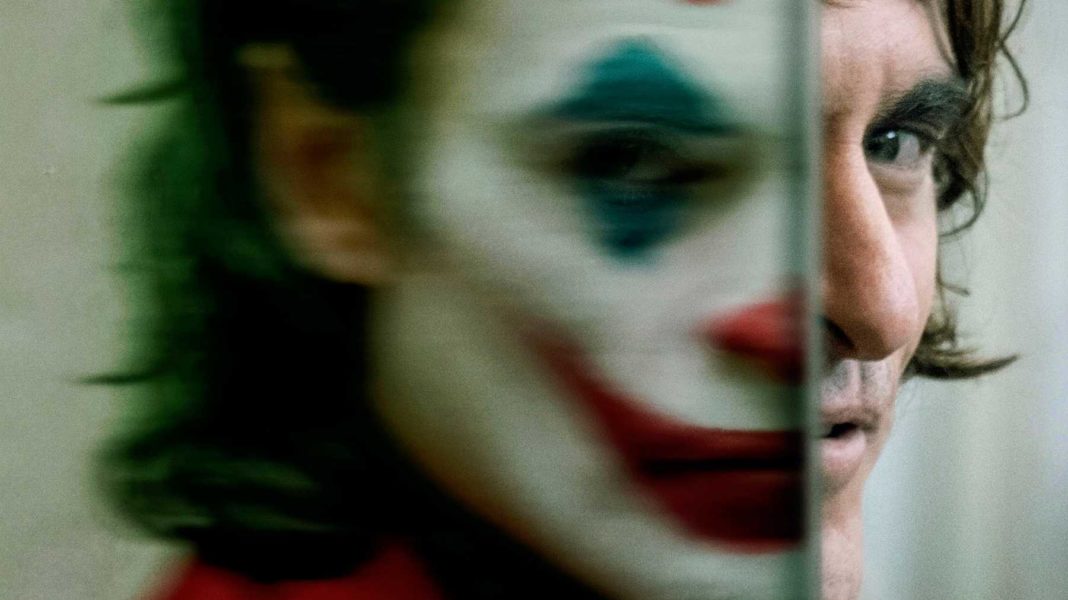Gotham City is burning, failing, and far from an ideal hometown. It is becoming increasingly difficult for the poor to find a job and live amidst rampant lawlessness. Arthur Fleck (Joaquin Phoenix) is trying hard just to be okay and to keep his job – being a party clown. He lives with his mother, who calls him Happy, and he desperately tries to live up to this nickname. A bullied, isolated Arthur wants to spread joy and dreams of making it as a stand-up comedian. But Arthur is severely troubled and is prescribed several medicines to keep his “bad thoughts” in check. In attempts to “be normal”, Arthur pretends to be happy while grasping at straws to keep afloat mentally. However, a series of happenings trigger Arthur’s descent into his madness and Arthur unapologetically embraces the chaos in his head. When Arthur exempts himself from existing in two worlds at once – a world in his mind and the real world – is when he truly becomes the Joker.
Joker is intended as a standalone film—part of DC Films’ decision to move away from the shared-universe approach of their prior franchise films (aka, the Marvel model). So, it has no relation to the Justice League films that came before. That freed Director Todd Phillips to create his own darker, gritty version of this iconic character, with a comparatively modest budget of $55 million. There’s no real origin story for the Joker in the comics—not a definitive one, anyway—so Phillips and screenwriter Scott Silver were able to cherry-pick the canonical elements they needed and make up the rest. (In Batman: The Killing Joke, for instance, the Joker is a failed comedian.)
When Arthur laughs, it’s as if the laughter is being ripped from his lungs. It seems to rattle through his whole body and his eyes look pained, as if he might be sobbing instead. It’s a condition, according to a little card that he must carry for medical purposes, a sort of Tourette’s Syndrome, and the peal of mirthless hysterics comes abruptly and uncontrollably. It happens on the bus, where it alarms children, and on stage during Arthur’s hopelessly bad attempts at stand-up comedy. What might seem absurd on paper – the classic comic book villain’s maniacal laughter explained in this manner – works inexplicably well in situation.
The repeated piercing of his fragile illusions ultimately drives Arthur over the edge, particularly since he is no longer taking his medications. His violent outbursts start out as self-defense, then shift into revenge against those who ridiculed and humiliated him—until he finally succumbs completely to madness, igniting riots throughout Gotham City in the process. It’s not Arthur/Joker deliberately leading Gotham City into chaos; he says repeatedly that he’s not “political.” The city was already a pressure cooker of simmering tensions, just waiting for a match to light it all up—much like Arthur’s precarious psychological state.
It’s not an understatement to say this film belongs to Joaquin Phoenix, whose masterful performance transforms the narrative into something more than a competent-but-unremarkable tale of hard knocks driving a troubled man to violence. He even dropped 52 pounds for the role. Seriously, just give him the Best Actor Oscar already. (Phoenix has been nominated three times and never won.)
I remain a huge fan of Heath Ledger’s Joker in The Dark Knight, easily one of the best portrayals of a fully developed Joker on-screen. And I am reluctant to compare the two performances, mostly because, for much of Joker, Phoenix is playing Arthur Fleck, the repressed, introverted, mentally ill man who gradually descends into violent anarchy. (The film is deliberately ambiguous as to whether Arthur becomes the actual Joker.) That journey is portrayed not just in broad strokes but also via the tiniest of mannerisms. Arthur practices some awkward dance while attempting to calm down after an encounter with subway thugs, for instance, which eventually turns into the Joker’s theatrical flourishes when he introduces himself to the world on live TV in the film’s final act.
Seeking to explore how such monsters are made—and how our own lack of empathy for those less fortunate, augmented by a crumbling social infrastructure and rising economic inequality, contributes to their creation—does not excuse or condone their horrific acts. Perhaps what people find most unsettling about Joker is that it holds up an unflattering mirror, reflecting our own indifference and complicity, whether intentional or not. Joker is a stunning film as a whole, so we’d say watch it for everything. The story, the dialogue and Joaquin Phoenix’s performance are the highlights of the film. Knowing what you already know about the Joker from previous films, it is interesting to learn more about how the pure, unanchored chaos came to be.
Tony Tann
tdtann@vwu.edu
